Teaching tools and innovations
5-Minute Physics
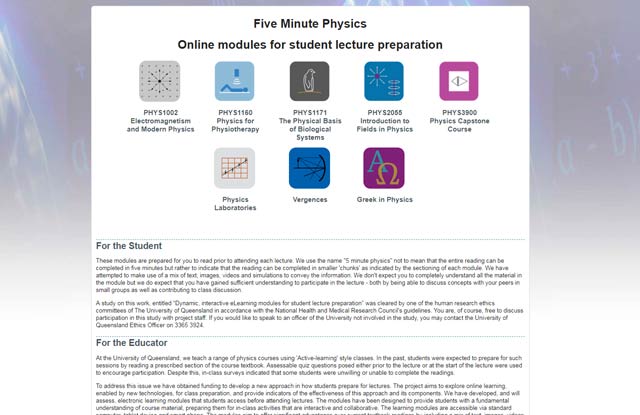 Mathematics and physics students prepare for lectures with 5-Minute Physics, a suite of online learning modules enabled by technology.
Mathematics and physics students prepare for lectures with 5-Minute Physics, a suite of online learning modules enabled by technology.
Replacing traditional prescribed textbook reading and quiz preparation, the modules comprise text, images, video and simulations, and provide students with a fundamental understanding of course material in preparation for interactive and collaborative in-class activities.
The approach was tested in a large first-year physics course (up to 500 students) and now aids student learning across all first-year physics courses (around 1,000 students) as well as in other subject areas.
The outcomes of the study were published in the Teaching and Learning Inquiry Journal in 2018.
Augmented Reality Sandbox
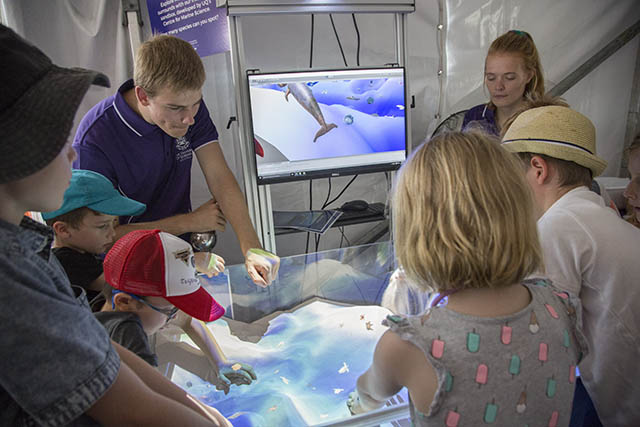 The Augmented Reality Sandbox, developed by Dr Linda Nothdurft, uses innovative digital surface mapping and projection technology to create an interactive representation of landscapes.
The Augmented Reality Sandbox, developed by Dr Linda Nothdurft, uses innovative digital surface mapping and projection technology to create an interactive representation of landscapes.
By getting hands-on and altering these miniature landscapes, students can immediately see the big-picture impacts of land use and climate change on flora and fauna.
The sandbox can be used to teach basic earth systems to schoolchildren and complex sciences including topology analysis, fluid dynamics and climatic mapping.
Flipped Classroom: preparing for veterinary pracs
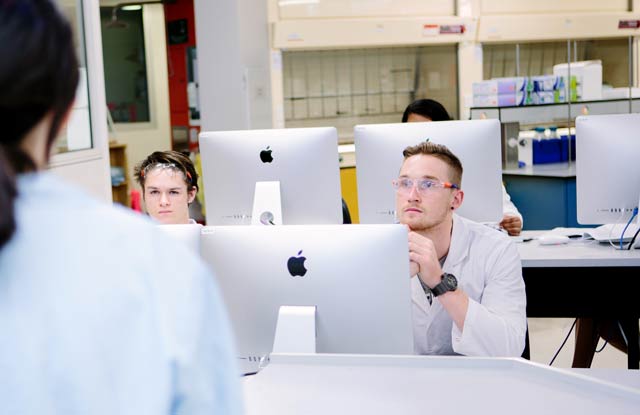 Many of our teachers apply the Flipped Classroom learning approach. With a focus on students' application of conceptual knowledge rather than factual recall or straight transfer of information, the approach encourages students to interact and think like science professionals.
Many of our teachers apply the Flipped Classroom learning approach. With a focus on students' application of conceptual knowledge rather than factual recall or straight transfer of information, the approach encourages students to interact and think like science professionals.
After tweaking the design of their courses, academics such as the School of Veterinary Science's Professor Paul Mills have seen a marked improvement in student engagement and course failure rates.
His virtual microscopy resource and suite of anatomy videos helps veterinary science students prepare for clinically-focused practical sessions and revise at their own pace.
The students are encouraged to take responsibility for learning by being prepared for classes and to interact with their peers while instruction is focused on guiding knowledge.
Getset Quiz
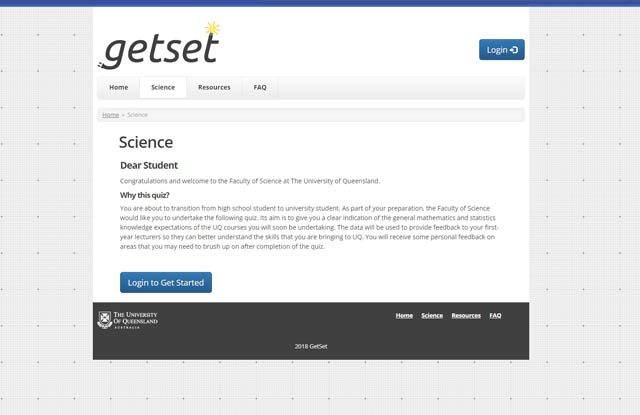 The Getset Quiz is a compulsory quiz for students entering their first year of science at UQ, designed to determine their understanding of key concepts in subjects studied at school.
The Getset Quiz is a compulsory quiz for students entering their first year of science at UQ, designed to determine their understanding of key concepts in subjects studied at school.
The quiz was developed by Mr Michael Jennings from the School of Mathematics & Physics with colleagues from the UQ Faculty of Engineering, Architecture and Information Technology. It allows students to discover areas where they may need revision, directs them to resources and sets study expectations. It also feeds information back to first-year lecturers, so they can tailor their lectures to their students’ needs.
Results have shown that 77 per cent of those who completed the 2017 quiz passed all their assessments in Semester 1.
Immersive Visualisations
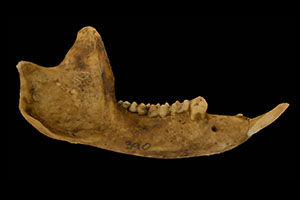 Earth and biological sciences students can view and interact with virtual fossils, minerals and landscapes by using a range of immersive visualisation eLearning tools.
Earth and biological sciences students can view and interact with virtual fossils, minerals and landscapes by using a range of immersive visualisation eLearning tools.
UQ Science experts developed the 3D models, interactive tours and gigapixel imagery, which greatly expand access to teaching materials and aid in the visualisation of complicated 3D geometries.
By visiting UQ Immersive Visualisations, students interact with and annotate models and images, and submit them electronically for assessment and feedback. Academics have integrated the models into everyday teaching and use them to take undergraduates on "virtual fieldtrips" to remote outback areas.
Semant
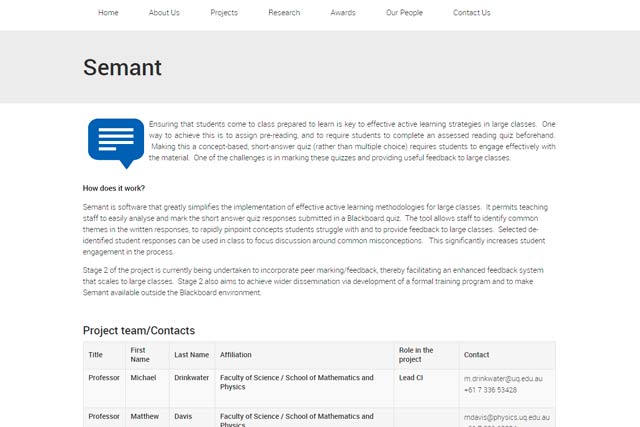 Semant is a semantic analysis tool that allows lecturers to rapidly determine what students are struggling with and adapt teaching materials to suit.
Semant is a semantic analysis tool that allows lecturers to rapidly determine what students are struggling with and adapt teaching materials to suit.
Designed by Professor Michael Drinkwater with Professor Matthew Davis, the program asks students to engage in pre-reading or information videos before each lecture and complete a short quiz. The quiz results, and the clear gaps in the students’ knowledge evident from them, are used to improve lectures.
Semant is better allocating lecturer time and resources in addressing key needs of students in technical courses, creating a more efficient and cohesive learning experience.
